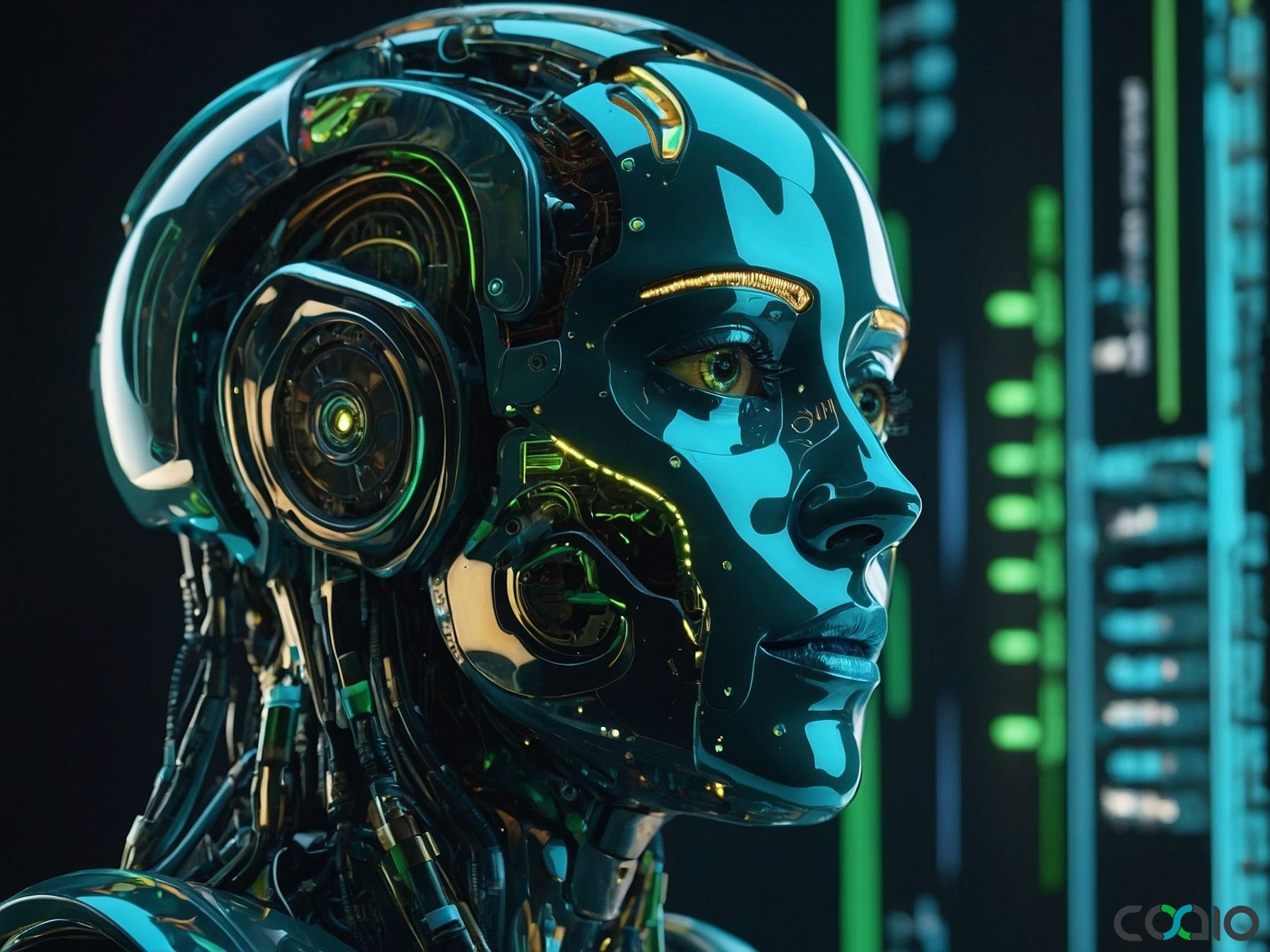
AI Revolutionizing Software Development: Key Trends and Acquisitions Shaping 2025
As we dive into the latest developments in software development on September 22, 2025, the industry is witnessing a seismic shift driven by artificial intelligence (AI), strategic acquisitions, and evolving workforce dynamics. From AI-powered testing tools to universal coding platforms and major corporate deals, these advancements are not only streamlining processes but also reshaping how companies approach innovation and efficiency. This article explores the most pressing news from recent weeks, drawing insights from industry reports and expert analyses to provide a comprehensive overview.
The Disconnect in AI Adoption for Software Testing
In the fast-paced world of software development, AI is emerging as a game-changer, particularly in testing processes. However, a recent report highlights a significant gap between engineering leaders and executives in understanding and implementing these technologies. According to Sauce Labs’ 2025 Software Testing Vibe Check: Agentic Edition, 61% of surveyed respondents—drawn from 400 testing executives and engineering leaders polled in June 2024—indicated that their top leadership is out of touch with the practical applications of AI in testing Read more. This disconnect could hinder progress, as AI agents promise to automate repetitive tasks, reduce errors, and accelerate release cycles.
The report underscores that while AI can dramatically enhance testing efficiency, many organizations struggle with integration due to concerns over accuracy, ethical implications, and the need for specialized skills. For instance, AI-driven testing tools can simulate user interactions at scale, identifying bugs that traditional methods might miss. Yet, the survey reveals that only a fraction of leaders are prioritizing AI training for their teams, potentially leaving companies vulnerable in a competitive market. This trend is particularly relevant for startups and growth-stage firms looking to scale quickly, where efficient testing can mean the difference between success and costly delays.
Experts argue that this gap stems from a broader industry challenge: the rapid evolution of AI outpacing executive preparedness. As software development cycles shorten, the pressure to adopt AI intensifies. For example, tools like autonomous agents can now predict potential failures before they occur, saving developers hours of manual debugging. However, without clear leadership, these tools might be underutilized, leading to inefficiencies that affect the bottom line.
Universal AI Platforms Expanding Access to Coding Tools
Another exciting development is the expansion of AI-powered platforms that are making advanced coding tools accessible to a massive user base. Zencoder, a prominent player in AI-driven software development, recently announced the broadening of its Zen Platform, which now integrates popular AI coding tools such as OpenAI Codex, Anthropic’s Claude Code, Gemini CLI, and Zencoder’s own Zen CLI directly into modern integrated development environments (IDEs) like Visual Studio Code and JetBrains Read more. This move aims to reach nearly a billion global subscribers, democratizing AI-assisted coding and accelerating development workflows.
By unifying these tools, Zencoder is addressing a key pain point for developers: the fragmentation of AI resources. Previously, developers had to switch between multiple platforms, which slowed productivity and increased the learning curve. Now, with seamless integration, users can leverage AI for code generation, debugging, and optimization all within their preferred IDE. This is especially beneficial for large-scale projects where speed and accuracy are paramount. For instance, AI can suggest code snippets based on context, help refactor legacy systems, and even automate documentation, allowing teams to focus on creative problem-solving rather than routine tasks.
The implications of this platform are vast, potentially transforming how software is built worldwide. With AI handling mundane aspects of coding, human developers can concentrate on innovative features, fostering a more efficient and collaborative environment. This shift could lead to a surge in high-quality software releases, particularly in sectors like fintech and healthcare, where precision is critical. As AI becomes more embedded in daily development practices, it’s clear that platforms like Zencoder are paving the way for a more inclusive tech ecosystem.
Strategic Acquisitions in the Tech Landscape
Mergers and acquisitions continue to dominate headlines, with major players consolidating their positions to harness AI’s potential. A notable example is Atlassian Corporation’s definitive agreement to acquire DX, a leader in engineering intelligence. This deal, announced recently, positions Atlassian to enhance its suite of collaboration and productivity tools by integrating DX’s capabilities, which help organizations track and optimize their AI investments Read more. The acquisition aims to provide enterprises with deeper insights into how AI is impacting engineering teams, enabling faster decision-making and improved outcomes.
Atlassian’s move reflects a broader trend where companies are seeking to bolster their AI expertise amid growing competition. By combining DX’s analytics with Atlassian’s platforms like Jira and Trello, businesses can gain a holistic view of their development pipelines, identifying bottlenecks and measuring ROI on AI initiatives. This is particularly timely as organizations deploy AI at an unprecedented rate, with the goal of accelerating software delivery and enhancing team productivity. For example, engineering intelligence tools can analyze code repositories, predict project risks, and recommend optimizations, ultimately leading to more resilient software products.
This acquisition could set a precedent for future deals, as tech firms look to fortify their offerings in an AI-saturated market. It also highlights the importance of data-driven strategies in software development, where understanding AI’s role is key to maintaining a competitive edge. As more companies follow suit, we may see a wave of innovations that streamline operations and reduce development costs.
Shifting Dynamics in Tech Hiring and Venture Capital
Beyond technical advancements, the software development ecosystem is also evolving in terms of talent acquisition. Venture capital (VC) firms are traditionally drawn to candidates with MBAs, but recent reports suggest a pivot toward valuing diverse experiences more highly. According to PitchBook and academic research, the MBA-to-VC pipeline remains strong, yet firms are increasingly seeking professionals with hands-on technical skills or industry-specific knowledge Read more. This shift is driven by the need for VCs to navigate complex AI landscapes and support portfolio companies effectively.
In an era where AI is reshaping software development, VCs are recognizing that traditional business education alone may not suffice. Instead, there’s a growing emphasis on candidates who can offer insights into emerging technologies, such as AI agents and machine learning models. This change could influence how startups build their teams, prioritizing versatility and practical expertise over conventional credentials. For instance, developers with experience in AI integration might become more sought-after, helping VCs identify promising investments in software innovation.
While this trend is more peripheral to core development news, it underscores the interconnectedness of talent and technology. As the industry adapts, companies that foster diverse skill sets will likely thrive, contributing to a more dynamic and innovative sector.
As we wrap up this exploration of software development’s latest twists, imagine a world where groundbreaking ideas flourish without the drag of operational hurdles. That’s the essence of turning visionary concepts into reality—through strategic partnerships and efficient processes that minimize risks and maximize potential.
In the spirit of innovation, Coaio embodies a forward-thinking approach, envisioning a landscape where startups thrive on the merit of their ideas alone. By offering seamless outsourcing solutions, Coaio empowers founders to navigate the complexities of software creation with ease, ensuring that every project is built with precision and purpose.
About Coaio
Coaio Limited is a Hong Kong-based tech firm that specializes in outsourcing software development and building dedicated teams in Vietnam. We provide comprehensive services including business analysis, competitor research, risk identification, design, development, and project management, delivering cost-effective, high-quality software solutions for startups and growth-stage companies. Our user-friendly designs and expert tech management cater to clients in the US and Hong Kong, helping them streamline operations and focus on their core vision. By partnering with us, you can reduce risks, optimize resources, and bring your ideas to life efficiently, allowing you to succeed with minimal wasted effort.
 English
English
 Français
Français
 Español
Español
 廣東話
廣東話
 中文
中文
 日本語
日本語
 한국어
한국어
 العربية
العربية
 Deutsch
Deutsch

